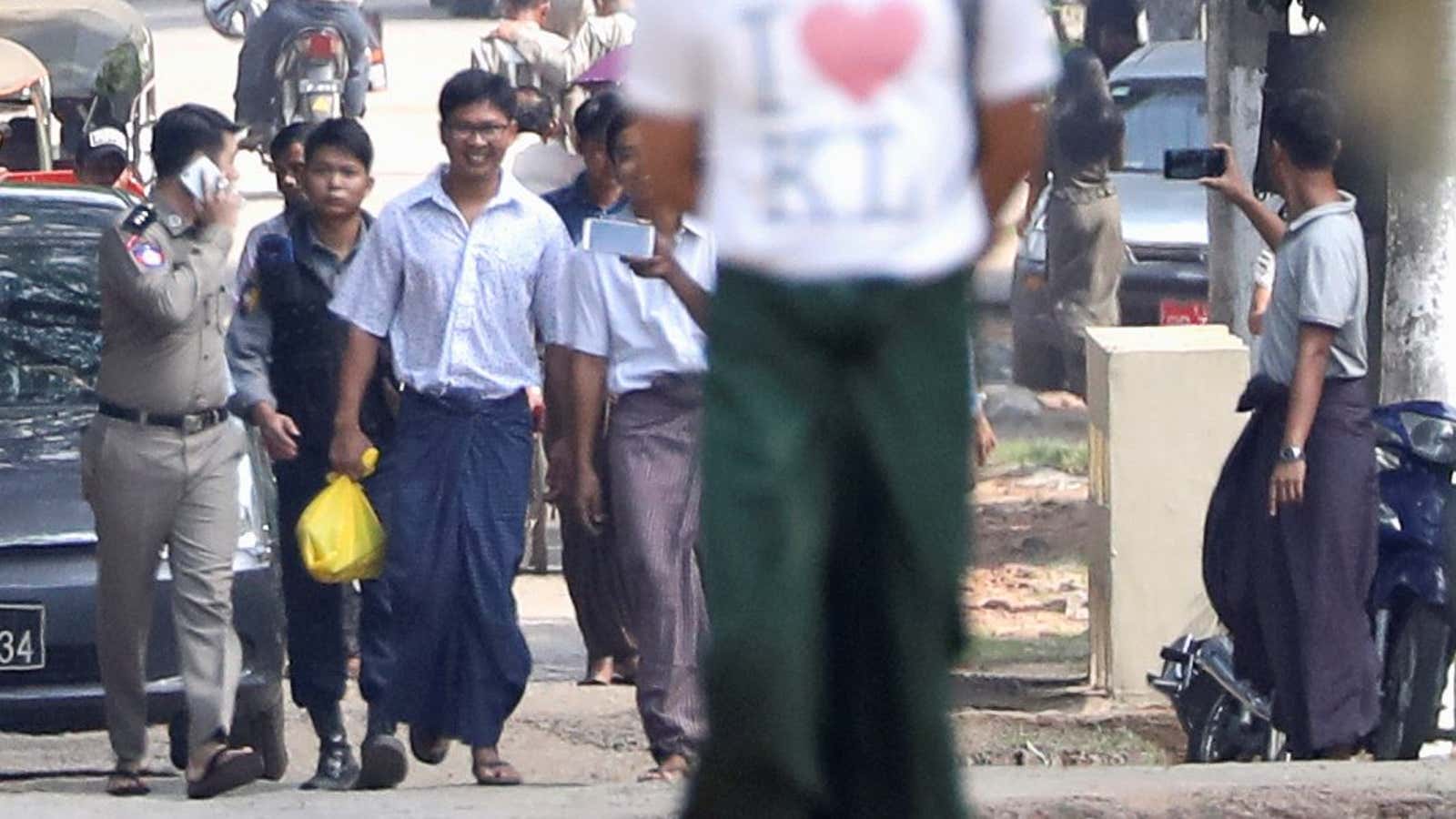Two Reuters journalists who were arrested in 2017 as they investigated the Myanmar military’s violent crackdown on Rohingya Muslims, and sentenced to seven years in prison, were freed today after more than 500 days behind bars.
Their release comes just two weeks after Myanmar’s Supreme Court rejected their appeal in a case seen as a symbol of the country’s faltering democratization.
The two journalists, Wa Lone, 33, and Kyaw Soe Oo, 29, were among the 6,520 prisoners to be released in an amnesty Tuesday (May 7), according to a statement from the president’s office. President Win Myint has pardoned thousands of other prisoners since last month, as part of its annual mass amnesties to mark the country’s traditional new year, which began on April 17.
“We are enormously pleased that Myanmar has released our courageous reporters, Wa Lone and Kyaw She Oo,” said Stephen J. Adler, editor-in-chief of Reuters, in a statement. “Since their arrests 511 days ago, they have become symbols of the importance of press freedom around the world. We welcome their return.”
Wa Lone and Kyaw Soe Oo were seen flashing huge smiles and waving to supporters as they walked free outside Insein prison. “I’m really happy and excited to see my family and my colleagues. I can’t wait to go to my newsroom,” said Wa Lone.
The two were arrested in December 2017, sparking an international outcry, after a police officer thrust a bunch of documents on them. They were subsequently charged with violating the colonial-era Official Secrets Act. They denied the allegation and argued that they were framed. During the trial, a police officer unexpectedly testified in their favor that the men were given confidential documents as part of a setup. But they were nevertheless convicted in September 2018.
In April, Wa Lone, Kyaw Soe Oo, and their colleagues were awarded the Pulitzer Prize for international reporting for “expertly exposing the military units and Buddhist villagers responsible for the systematic expulsion and murder of Rohingya Muslims from Myanmar.” The story they were working on at the time of their arrest was published in February 2018, and detailed the killing of 10 men by villagers and troops in September 2017. A United Nations report last September that said Myanmar’s military had “genocidal intent” against the Rohingya and cited the situation of the Reuters journalists as part of a pattern of suppressing criticism and scrutiny of authorities’ propagation of hatred.
Many, including in Myanmar, expressed happiness at the freeing of the journalists. Burmese historian Thant Myint-U also noted the timing of the release of the two journalists appeared to be aimed at reducing the impression the country was responding to international pressure.
